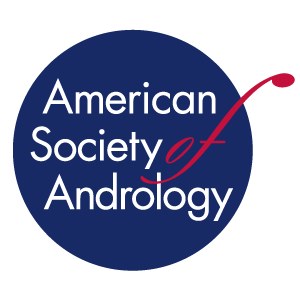ASA Election Ballot
Deadline to Vote is November 9, 2020
Vice President Nominations

Mark Sigman, MD
Biography
Mark Sigman, MD is the Krishnamurthi Family Professor and Chief of Urology at the Warren Alpert Medical School of Brown University and Chief of Urology at Rhode Island Hospital and the Miriam Hospital. Dr. Sigman’s clinical work focuses on male reproduction – both sexual dysfunction and infertility. He is co-director of the Miriam Men’s Health Clinic.
Dr. Sigman’s research focuses on molecular biomarkers of male infertility in a collaborative research initiative at Brown University. The research involves examining animal models of testicular toxicity and comparing changes in sperm epigenetic patterns to those in infertile men.
He has been a council member of the ASA, ASA program co-chair, as well as participated in multiple annual program committees. He is an editorial editor for Fertility and Sterility, is an oral examiner for the ABU, past president of the NE AUA, the Society for the Study of Male Reproduction, and the Society of Reproductive Surgeons.
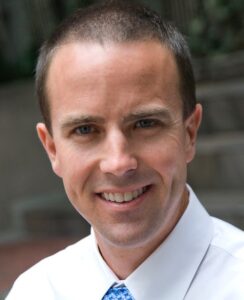
James F. Smith, MD
Biography
James F. Smith MD, MS
Director, UCSF Male Reproductive Health
Associate Professor in Residence, Departments of Urology (primary); Obstetrics, Gynecology, and Reproductive Sciences; and Health Policy.
I graduated from the University of California, Berkeley with a degree in molecular biology and subsequently graduated from UCSF’s School of Medicine, earning a master’s degree in 2000 and a medical degree in 2002. After completing general surgery and urology residency training at the University of Utah in Salt Lake City, I returned to UCSF as an Andrology fellow from 2007-2009. Since 2009, I have been Director of Male Reproductive Health at UCSF caring for men with a wide range of male reproductive and sexual problems. Through investigations of sperm motility, spermatogenesis, and semen physiology, my NIH-supported research centers on my desire to help patients become parents after facing fertility threatening treatment. My team and I conduct translational research focused on fertility preservation and restoration. From a policy and health services perspective, my work seeks to identify and break down barriers to accessing male reproductive care. I love brainstorming with my ASA colleagues about the interconnections that exist between these various levels of male reproductive health and value deeply the relationships we build in the ASA.
At the national leadership level, I strive to build an environment of innovation, diversity, and collaboration within our field. Over the last 3 years, I have served as Co-Chair of our ASA national meeting program, “Personalized Reproductive Medicine for the Male: From Bench to Bedside.” Over the years, within ASA, I have served as a Program, Liaison, Membership, and Public Affairs and Policy committee member, and as ASA Council member from 2015-2018. I currently serve as Vice President of the Society for Study of Male Reproduction and Chair of its Diversity Committee. I have served in leadership roles in ASRM, the Fertility Preservation Special Interest Group, Oncofertility Consortium, and the Andrology Research Consortium. Fundamentally, I love bringing groups of trainees, clinicians and scientists together to work toward solving complex reproductive clinical, research, and public policy challenges. I have always valued ASA for its focus on doing just that: bringing us together to solve complicated problems through friendship and collaboration. As Vice President, I would increase the value of being an ASA member by creating more online webinars and virtual cafés while also developing tools that allow more interconnections at our 2021 virtual annual scientific meeting. As one of ASA’s leaders, I would build more easily accessible connections between us, increase public awareness of the male reproductive work we do, and actively promote diversity within our membership and leadership ranks.
Trainee Representative
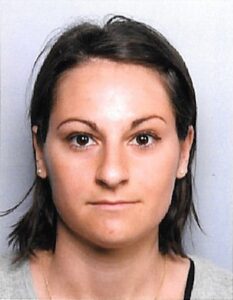
Celine Augiere, PhD
Biography
As a postdoctoral fellow at Université Laval, CHU de Quebec Research Center, Quebec, Canada, I have combined my knowledge and skills centered on ciliary functions with male reproductive physiology to advance fundamental research in andrology and to build my career as an independent researcher. After integrating into the laboratory directed by Clémence Belleannée, Ph.D., I obtained a fellowship from the Reseau Quebecois en Reproduction (Canada) to investigate the role of primary cilia organelles from the efferent ductules in the control of male reproductive functions5. This pioneer work, performed in collaboration with Prof. Rex Hess (U. Illinois), is essential to clarify the distinct roles of immotile cilia versus motile cilia in these unique tubules, and to unravel the molecular mechanisms underlying unexplained male infertility issues. This innovative research is in direct continuity with the expertise I developed in France as both an undergraduate (U. Poitiers, France) and graduate student (U. Lyon, France). Since beginning my research training, I have incorporated my interest in spermatogenesis and male fertility issues related to ciliary defects, with the study of genetic diseases and developmental mechanisms. Having identified a causal gene mutation of cardiac and ciliary defects1, I successfully obtained a doctoral fellowship to conduct research on ciliary proteins required for spermatogenesis by using the drosophila as a genetic model (laboratory of Dr Bénédicte Durand, U. Lyon, France)2–4. These different professional experiences have strengthened my desire to pursue my career path in andrology.
ASA Statement
As testament to my leadership throughout the years, I became concerned with community involvement in sport associations from an early age and as a postdoc I am involved in two local organizations as a student representative of the CRDSI (Research center in Reproduction). I am involved in the organization of an annual meeting (scientific programing, financial and logistical aspects) and the development of a new workshop. I am also responsible for the social activities of our research center’s student committee. I recently applied to become involved as an active member of the “Basic science workshop” committee to organize the next workshop for the ASA annual meeting. I wish to become more involved in the ASA scientific community by combining my passion for research with social aspects that will be enjoyed by the members.
My committee involvement has helped give voice to student concerns and new ideas at both local and international levels. As a student representative for the ASA, I see myself standing as an inclusive example for all ASA students, and I hope that my enthusiasm will help to develop a strong sense of belonging for all students in the andrology community. With the changes to our lives in the face of the pandemic it is now more important than ever that we stand up and become actively involved.
References
1.Augière, C. et al. A Novel Alpha Cardiac Actin (ACTC1) Mutation Mapping to a Domain in Close Contact with Myosin Heavy Chain Leads to a Variety of Congenital Heart Defects, Arrhythmia and Possibly Midline Defects. Plos One 10, e0127903 (2015).
2.Augière, C. et al. salto / CG13164 is required for sperm head morphogenesis in Drosophila. MBoC 30, 636–645 (2019).
3.Vieillard, J. et al. Transition zone assembly and its contribution to axoneme formation in Drosophila male germ cells. The Journal of Cell Biology jcb.201603086 (2016). doi:10.1083/jcb.201603086
4.Lapart, J.-A. et al. Dzip1 and Fam92 form a ciliary transition zone complex with cell type specific roles in Drosophila. eLife 8, 1–27 (2019).
5.Girardet, L., Augière, C., Asselin, M. & Belleannée, C. Primary cilia: biosensors of the male reproductive tract. Andrology andr.12650 (2019). doi:10.1111/andr.12650
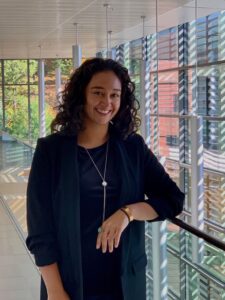
Darya Tourzani, PhD
Biography
Biographical Sketch
I started my scientific training in the field of reproduction in 2014, as an undergraduate researcher under the direction of Dr. Pablo Visconti at the University of Massachusetts Amherst. During this initial time, my project focused on understanding and describing a post-translational modification, O-GlcNAcylation during sperm maturation in the epididymis. In 2016, after obtaining my B.S. in Animal Science, I continued my graduate studies in the Visconti Lab. During this initial time, I completed the maturation project, characterizing the role of O-GlcNAcylation. In 2017, I received the Carl Storm Minority Fellowship from the Gordon Research to present this data. Followed in 2018, I presented an extension of this project done in collaboration with Dr. Sylvie Breton at the 7th International Conference on the Epididymis. In addition to research mentioned above, my research interests have moved in the direction of understanding the sperm’s relevance to fertilization and post-fertilization events. In 2018, I was awarded the NIH Biotechnology Training Program Fellowship to further my investigation in this project. Our lab generated a novel technique that has allowed us to improve the reproductive productivity of the male side, thus allowing us to investigate the role that sperm have in early embryo development. As I continue my training in the field, I am encouraged and excited by the advances our community is making.
ASA Statement
During my graduate training I have been fortunate to take on different roles and levels of responsibility that I believe would make me a strong candidate. At my institute, I have been involved in symposium committees to help organize speakers, luncheons and activities throughout the day. Independently from this, I organized my department’s bi-annual retreat in 2018. In 2017, I was invited to join the Frontiers in Reproduction team as the course facilitator for two years. During this time, I was in charge of organizing team-bonding dinners twice a week, assisted in preparing the various labs with course material and supplies, organizing events on the weekends for the students and group activities each night. It was an amazing opportunity that allowed me to meet a wide range of scientists from all over the world. This inclusive atmosphere is exactly how the ASA made me feel during my first conference in 2018. As a new trainee, being thrown into a room can often be intimidating, but the activities such as the trainee photo scavenger at the last ASA made networking for young trainees less stressful. It is important to continue these activities and others as a trainee representative, to continue to make new trainees feel welcomed in our community.
Director (Clinical)
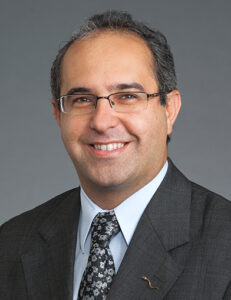
Hooman Sadri, MD PhD
Biography
Background
Dr. Hooman Sadri is currently practicing as a male reproduction specialist at the Department of Urology and the Center for Reproductive Medicine in Winston Salem, Greensboro and Charlotte, NC. A former Research Scholar of the American Urological Association (2017-19), Dr. Sadri’s translational research focuses on the dynamics of male germ lineage development to establish the pool of Spermatogonia Stem Cell (SSC) and the mechanisms that regulate SSC self-renewal and differentiation. His research on development of a three-dimensional human testis organoid system led to a research article that was selected as the best publication of the year (2017) by the Society for the Study of Reproduction (SSR). Dr. Sadri’s lab also investigates the feasibility and safety of SSC transplantation as a treatment for male infertility. In 2014, Dr. Sadri established the Wake Forest testicular tissue banking for boys and men at risk of infertility, which is currently one of the three major SSC banks in United States. His clinic is currently part of AXYS (Association for X and Y Variations) Clinic and Research Consortium (ACRC), serving patients with Klinefelter Syndrome and other genetic variations affect fertility.
ASA Statement
Dr. Sadri has been an active ASA member since 2012 and has served as the Co-Chair of the Diversity Committee, member of the Trainee Affairs Committee and the Annual Program Planning Committee. In these capacities, Hooman has worked closely with several committees and members of the Society as his primary and main professional organization. He has a great passion and a deep commitment to the ASA. As a physician-scientist working in the multidisciplinary area of male reproduction and andrology, Hooman believes in the importance of all members’ participation, from various clinical and research backgrounds, for the ASA to become a leading organization in the area of andrology.
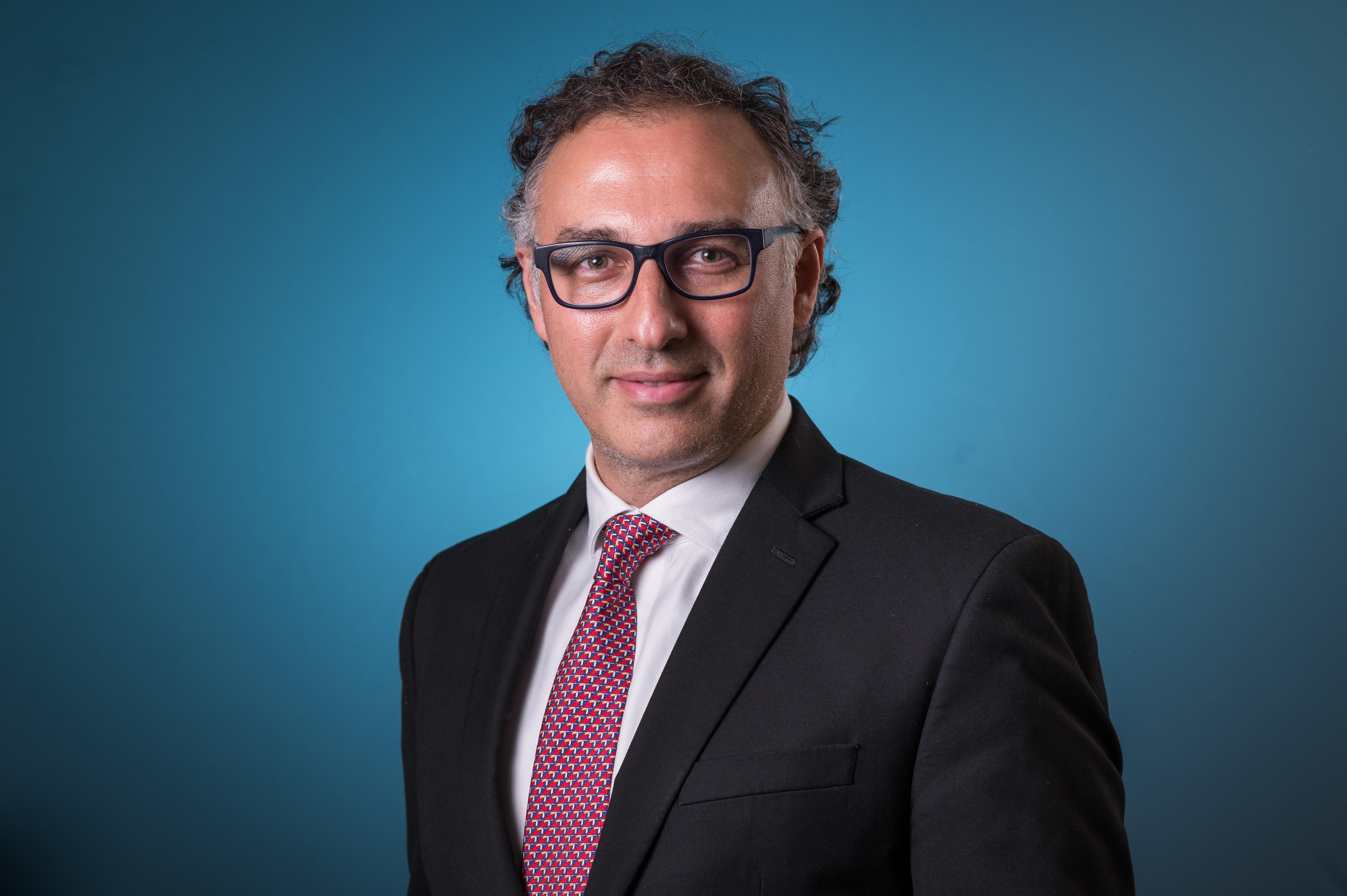
Omer Raheem, MD
Biography
Biographical Sketch
Dr. Raheem is a board–certified urologist based at Tulane University School of Medicine and its affiliated teaching hospitals and clinics. He completed his andrology fellowship at the University of Washington, where he specialized in Male Reproductive Sexual Medicine and Surgery and held a teaching appointment as acting instructor.
Dr. Raheem completed his general surgery and urology residency training at the University of California, San Diego, where he served as Chief Resident in his final year. He was awarded the George W. Kaplan Outstanding Research Resident for three consecutive years.
His clinical and research interests include all aspects of male reproductive, andrology and sexual dysfunction. He is a microsurgeon and commonly performs microscopic vasectomy reversal and varicocele surgery as well as advanced micro-surgical sperm retrieval procedures for infertile men.
Dr. Raheem has contributed to more than 100 publications in peer-reviewed medical journals and several book chapters. He has been awarded several research prizes, including Best Poster at the 2011 and 2015 annual meetings of the American Urological Association, and the San Diego Urological Society 2017 Resident Essay Contest 2017. Since joining Tulane, he received two major investigator-initiated Research funds supported by industry to examine effect of Testosterone on cardiovascular events and multiple sclerosis patients.
Dr. Raheem’s goal is to establish a state-of-the art Men’s Health Center at Tulane, with an emphasis on sexual and reproductive care, and is dedicated to including research and education in his practice.
ASA Statement
Throughout my urology training, I have served on numerous leadership committee and taskforces at different capacities as resident, fellow, and now, as an academic staff urologist/andrologist. My leadership roles include:
- 2020: American Urological Association (AUA)- Early Career Investigators workshop
- 2020-present: Website committee, Society for Study of Male Reproduction (SSMR)
- 2019-2020: Education committee, International Society for Sexual Medicine (ISSM)
- 2019-present: Social media committee, Sexual Medicine Society North America (SMSNA)
- 2018-present: Grants committee, Sexual Medicine Society North America (SMSNA)
- 2018-present: Associate member, Southeastern Section American Urologic Society (SES-AUA)
- 2018-present: Dean, professionalism committee, Tulane University School of Medicine
- 2016-2017: Resident committee, Western Section American Urological Society (WS-AUA)
Lastly, I would like to reassure the ASA membership that I will contribute positively and effectively to the ASA organization. Working with the talented leadership and membership, I will strive to raise the ASA achievements.
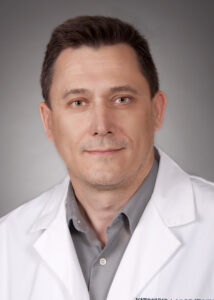
Alexander Yatsenko, MD, PhD
Biography
Biographical Sketch
Dr. Yatsenko is a physician–scientist certified in Clinical Molecular Genetics, ABMGG.
He earned his MD and PhD degrees in Genetics in Russia, in 1993 and 1997 respectively. He had joined postdoctoral training in human molecular genetics in the Baylor College of Medicine, Houston TX in 1999. Completed his Clinical Molecular genetics fellowship in 2009. He was promoted to Assistant Professor at Department of Pathology in 2010. In 2011 Dr Yatsenko joined University of Pittsburgh, School of Medicine, Department of OBGYN and Reproductive Sciences. In 2019 he was promoted to Associate Professor. Dr. Yatsenko serves as a co–director of Clinical Genomics Laboratory at the University of Pittsburgh Medical Center, UPMC.
Research and clinical work
Dr. Alexander Yatsenko’s research focuses on identifying genetic errors that cause irreversible infertility in men, a disorder that in vitro fertilization treatment can’t solve for hopeful, would-be parents. Dr. Yatsenko and team work to decipher the effects of gene mutations on mRNAs, proteins, and cell function. He and his laboratory have been productive in the identification and functional characterization of specific gene mutations affecting male reproductive function, publishing their work in top scientific journals. His ultimate goal is to connect his laboratory research with his clinical work, creating a diagnostic test that can detect the genetic mutation causing this type of male infertility, which right now remains a mystery.
ASA Statement
Dr. Yatsenko is a long-time member of the ASA, he joined the Society in 2005. For his work Dr Yatsenko has been recognized nationally and internationally, as evidenced by multiple platform presentations and chairing ASA platform sessions. In 2016 he was invited to join the ASA Communications and Media Committee. Since 2017 he leads the Committee a co–chair. In 2017 Dr. Yatsenko accepted an invitation and joined the editorial board of the ASA journal, the Andrology. In 2020 Dr. Yatsenko was involved in development of strategic plan for ASA social media relations and public relations.
Public service
Dr. Yatsenko was invited to serve as ad hoc reviewer for several NIH study sections. He is an active reviewer for over a dozen of top-tier journals, including prestigious the Journal of Clinical Investigation, American journal of Human Genetics, PLoS One, Journal Medical genetics, Molecular Human Reproduction, Fertility and Sterility, and others. Since 2013 Dr. Yatsenko is a co-director of Clinical Genomics Laboratory at the UPMC. He was involved in creating and running this facility from the beginning. The laboratory is serving clinical genetic and genomic testing at the Magee Womens Hospital. It includes mandatory ACOG genetic carrier testing and provides tests for hereditary forms of cancer. Recently the Laboratory launched comprehensive genomic Whole Exome Sequencing and Clinical Exome tests.
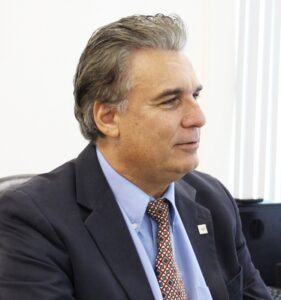
Luiz Renato de França, DVM, PhD
Biography
I believe that I started working with reproduction when I was a kid and, for my mother´s desperation, had a small zoo in my house. Therefore, naturally I became a veterinarian (1978) at age 22 and immediately (1979) was selected as a professor of veterinarian anatomy at the Federal University of Goiás in the Midwest of Brazil. Five years later I moved to the Southeastern of Brazil (Belo Horizonte city) to get my master (1987) and PhD (1991) degrees and soon after that I moved to the USA to become a very enthusiastic postdoc fellow (1992-1994) at Southern Illinois University under the supervision of Dr. Lonnie Russell. My research interest is related to comparative testis biology in vertebrates (from fish to humans), mainly spermatogenesis and spermatogonial stem cell biology and transplantation. I have supervised about 100 students (including undergraduate, master, PhD and postdocs) and published ~150 papers and 16 book chapters (8,500 citations and h index 50). I was the representative of Latin America in the editorial board of Physiological Reviews (2010-2018) and developed formal scientific collaborations with ~15 countries abroad, presenting innumerous international lectures in these countries and meetings. Probably as a consequence of my kid´s zoo, I had the privilege to become recently (2014-2018) the director of the National Institute for Amazonian Research, which is located in the core of the rain forest (city of Manaus) and is the biggest and most important tropical research center in the planet, where I also helped to create together with the Amazonian Military Command the Pro-Amazon Research Program.
I consider the American Society of Andrology the best society in our field and I am an active international member of ASA for about 20 years now. Moreover, I have been regularly attending the ASA meetings since 1993 in Tampa, Florida. I was nominated for the ASA Young Andrologist Award in 2000 and belong to the editorial board of Andrology Journal since 2012. Together with Dr. Rex Hess we started the initiatives for the creation of the ASA Lonnie Russell Fund/Merit Award. In Brazil I created the Journal Animal Reproduction (PUBMED; IF ~1.0) in 2004, being the Editor-in-Chief for ten years, and the International Symposium on Animal Biology of Reproduction in 2006, which is now on its 8th edition. In Brazil (Manaus) I was also the president of the 11th International Symposium on Fish Reproductive Physiology in 2018. This important meeting happens each four years and occurred for the first time in Latin America. One of my goals is to help the Society to increase its already excellent standards and international leadership, in particular help to develop more bridges with other societies in the field, including the Brazilian Society of Andrology and Reproductive Biology that is now being created. Thus, I want to have the privilege to serve ASA now in the prestigious position on the Board of Directors.
Director (Basic)
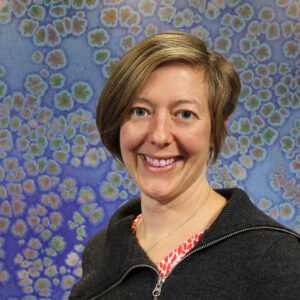
Jennifer R. Hughes, PhD
Biography
Biographical Sketch
I received my PhD from UC Davis in Animal Biology, my primary mentor was Dr. Trish Berger. I am a former T32 NIEHS Postdoctoral Fellow at UIUC with Dr. William Helferich and I am currently working under the mentorship of Dr. David Miller. My current projects include: the mechanism of oviductal sperm storage in the pig, the contamination of HSA with phthalates, and implementation of a clickable cholesterol analogue to track cholesterol dynamics in sperm.
ASA Statement
I have been a member of the ASA since 2012 when I attended my first meeting in my second year of my PhD. I served on the Membership committee in 2017 and became the Trainee Rep Elect in 2018. I have extended my Trainee Rep role for an additional year due to the pandemic. I also serve on the Ethics Committee and the Virtual Programming Committee. Some of the projects I have been a part of during my service are the development of the Award for Trainee Extraordinary Service, the Networking Hunt for the Trainees at the 2019 meeting and the development of a symposium titled, “Male Emotional Health and Infertility” which will be a part of the next annual meeting.
The community within the ASA has been so welcoming, encouraging, and supportive. It has kept me in science when things were not easy. As a member of the Board, I would continue to advocate for our trainees and strive to bring a sense of community to these members. If we can create an environment where trainees can connect, they will maintain their relationship though the ASA and our community will grow with them.

Mirella Meyer-Ficca, PhD
Biography
Biography
Dr. Mirella Meyer-Ficca received her education and initial scientific training in Germany. She holds a Dipl. Biol. degree (equivalent to a M.S.) from the University of Kaiserlautern, Germany, and a Ph.D. from the Eberhard-Karls-University of Tuebingen, Germany. Following post-doctoral training at the University of Arizona (Arizona Cancer Center, and University of Arizona College of Pharmacology), Mirella was a Senior Research Investigator at the University of Pennsylvania’s School of Veterinary Medicine. Since 2013, Mirella has been a faculty member at Utah State University in Logan, Utah.
Dr. Meyer-Ficca has published numerous research articles in various international scientific journals, including PLoS Genetics, Cell Reports, Biology of Reproduction. Studies in her research projects focus on varying aspects of spermiogenesis, and in particular on sperm chromatin structure, DNA integrity and epigenetic information, and their relevance for embryonic health.
Statement
The ASA has a central role as the main scientific society that advances research and knowledge in male reproductive biology and that helps translate new basic knowledge into improved medical practice and technologies.
Since 2019 I am serving as co-chair of the ASA Ethics Committee. The Ethics committee’s goal is to ensure every ASA member feels included at our scientific meetings and in our society. As initial steps towards those goals, ASA has updated the meetings policy and joined the Societies Consortium in STEMM.
I am excited about the prospect of further working toward the society’s goals of promoting basic and clinical male reproductive research, and increasing communication about important research results and the clinical opportunities that come with them. Of particularly importance to me is the goal to create more opportunities to engage and interest students and young researchers in the field of male reproduction, and to enable them to participate and contribute to this important field. As a member of the Board of Directors, I will work to ensure all researchers can experience the welcoming, collaborative and accessible scientific home that ASA is for me.
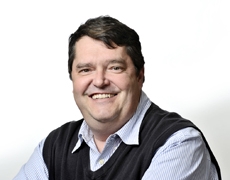
Daniel Cyr, PhD
Biography
Dr. Cyr is a graduate of Concordia University in Montreal, where he obtained a BSc (Hons) in biology and MSc in Toxicology. He then completed his PhD at the University of Manitoba, and postdoctoral studies at McGill University. He then joined the Canadian Federal Government, first as a biologist at Health Canada, and subsequently as a senior scientist in reproductive toxicology at the Maurice-Lamontagne Institute (Dept. of Fisheries and Oceans). He headed DFO’s national program on Endocrine Disrupting Chemicals and was Canadian representative on the Biological Effects Working Group of the International Council for the Exploration of the Seas (ICES). In 1996 he was recruited to the Institut National de la Recherche Scientifiques (INRS, Univ. of Quebec) where he currently heads the Toxicology and Pharmacology Axis. He has been a board member of the FRSQ-Environment Health Network (RRSE), Quebec’s Ecotoxicology Network (CIRÉ), Society of Toxicology of Canada, and the Québec Reproduction Network (RQR). In 2004, the Society of Toxicology of Canada awarded him the Veylein Henderson Award, and in 2014 the Gabriel Plaa Award of Distinction. He is a member of the University of Quebec’s ‘Circle of Excellence’ and currently holds a Canada Research Chair in Reproductive Toxicology. Dr. Cyr’s research has focused primarily on male infertility and the regulation of intercellular junctions in the epididymis and more recently on characterizing a novel epididymal stem cell population. Dr. Cyr has authored over 170 papers and book chapters and has given over 100 invited seminars. His research has been consistently funded by the Canadian Institutes for Health Research (CIHR) and the Natural Sciences and Engineering Research Council of Canada (NSERC).
Dr. Cyr first joined the ASA in 1991 and has served on several committees, including the Local Arrangements committee of the Member local organizing committee for the Annual Meeting and Testis Workshop (1991), Editorial Board for the Journal of Andrology (2007-12), Constitution and Bylaws committee (2011-15), and Publication committee (2015-19). As a member of council I believe that it is important to represent the views of the members of the society, and in having a society that is open to ideas and the involvement of younger members on our scientific programs, so we can highlight these scientists and work towards ensuring the renewal of our base membership. I am also deeply committed to diversity, inclusivity, and equity, and have supervised 87 trainees at different levels, of which 67% were women. I have also organized and participated in various outreach efforts, and if elected, will work closely with ASA council members on outreach activities.
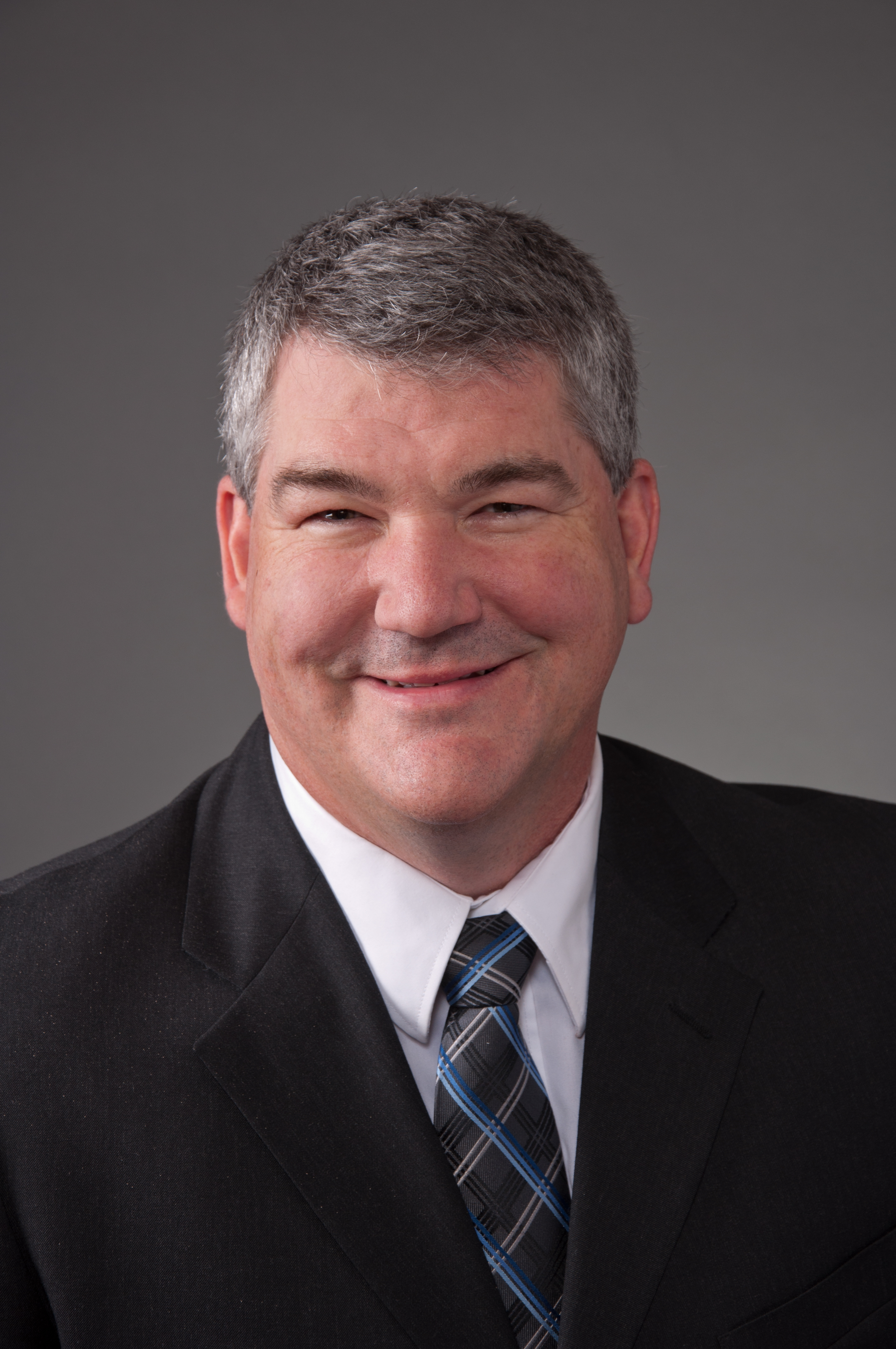
Kyle Orwig, PhD
Biography
Biographical Sketch
Dr. Orwig is a Professor of Obstetrics, Gynecology and Reproductive Sciences at the University of Pittsburgh School of Medicine. He is also the Director of the Fertility Preservation Program and the Center for Reproduction and Transplantation at UPMC Magee-Womens Hospital. Research in the Orwig laboratory focuses on stem cells, germ lineage development, fertility and infertility. Progress investigating reproductive function in fertile individuals provides a basis for understanding the mechanisms of infertility caused by disease, medical treatments, genetics or aging. Infertility impacts one in seven couples in the United States and can have a devastating impact on relationships, emotional well-being and overall health. The Orwig lab is ideally located in Magee-Womens Research Institute and Magee-Womens Hospital of the University of Pittsburgh Medical Center and is committed to translating lab bench discoveries to the clinic for diagnosis, prevention and treatment of infertility. As a former director of the Molecular Genetics and Developmental Biology Program and current director of an institutional T32 training grant on reproductive development, Dr. Orwig is committed to trainee research and career development.
ASA Statement
It is an honor to be considered for a position on the Board of Directors of the American Society of Andrology. ASA is one of my favorite societies because of the excellent mix of basic science, clinical research and clinical practice as well as affiliation with the Testis Workshop. The annual meeting is a perfect size for trainees and faculty alike to share their data, network and develop collaborations in a non-threatening, supportive membership.
I have been a member of ASA since 2005. I served on the 2013 Program Committee for the Testis Workshop as well as the Program Committees for the 2016 and 2017 ASA annual meetings. In addition to ASA, I have served on the Publications Committee, Local Arrangements Committee, Nominating committee (member and Chair), Awards Committee and Program Committee of SSR and the Program Committee and Research Committee of ASRM. I chaired the Regenerative Medicine and Stem Cell Biology special interest group of ASRM and am co-Chair of the 2022 Gordon Conference on Mammalian Reproduction. I hope these service and leadership experiences will enhance my contributions as a potential member of the ASA board of directors.
If selected as an ASA director, I would be committed to helping maintain the diversity of research and clinical content at the annual meetings and promoting involvement of trainees in the annual meetings and governance of the society.
Nominating Committee
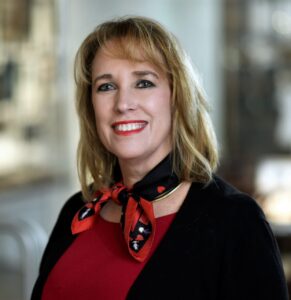
Dorrie Lamb, PhD
Biography
Biographical Sketch
Dr. Lamb is an investigator in the fields of basic, clinical and translational science of urology, male and female reproduction, infertility, steroid hormone action, prostate cancer and growth regulatory mechanisms. Her experience is unique, as she has extensive background in both male and female human reproduction and the clinical diagnostic and basic science arenas in urology, genetics and genomics of human male infertility and congenital urological and genital tract birth defects. Dr. Lamb was honored as the first recipient of the Distinguished Researcher Award by the American Society for Reproductive Medicine in recognition of her lifelong achievements in reproductive research, the Ramon Gutierras Lecture, the American Urological Association’s award for her contributions to Urology, the John Duckett Memorial Lecture, the American Urological Association’s award for her contribution to Pediatric Urology and The Distinguished Andrologist Award from the American Society of Andrology.
ASA Statement
Dr. Lamb is Past-President of the American Society for Reproductive Medicine (It’s first PhD president in the first ~70 years). She is past-President of the Society for Male Reproduction and Urology of the American Society for Reproductive Medicine and served on the ASRM executive Board. She is past-President of the Society for the Study of Male Reproduction of the American Urological Association, American Association of Bioanalysts, Society for Basic Urologic Research and program chair (twice), Council Member, past-Secretary and Past–President of the American Society of Andrology. Dr. Lamb serves on the licensing board of the American Board of Bioanalysts and is secretary -treasurer. She has trained 89 M.D., Ph.D., MD/PhD fellows (of whom 9 are now department chairmen), 14 residents, 9 graduate students and 54 undergraduate students. In 2007 she received the Distinguished Mentor Award from the American Urological Association Foundation and in 2019 she has received Mentor Awards from the Endocrine Society (a Laureate award), Cornell-China Circle and the Society of Women in Urology.
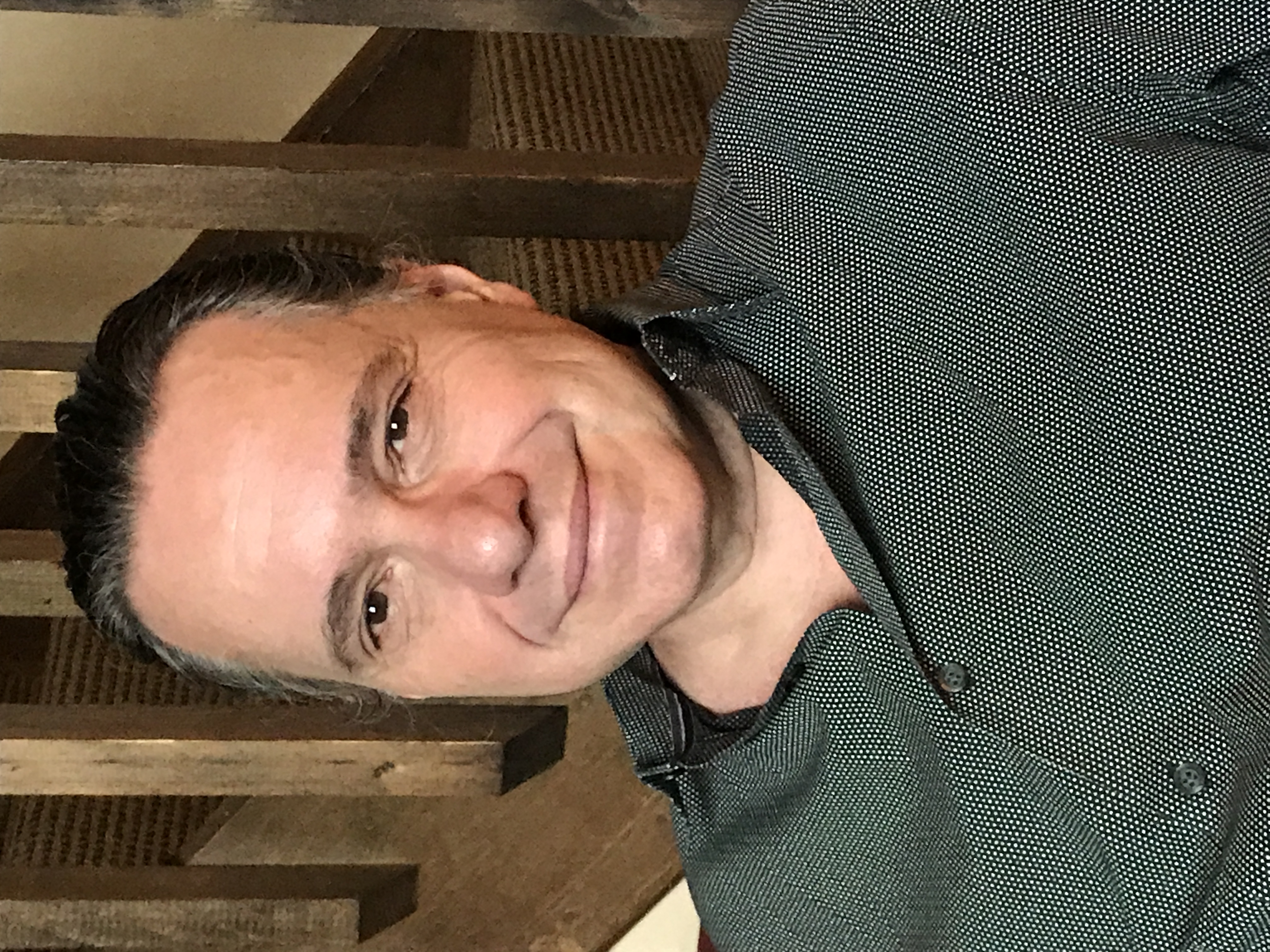
Pablo Visconti, PhD
Biogaphy
I received my PhD in Chemistry from the University of Buenos Aires in 1991 studying sperm signalling pathways. I did my postdoctoral work in the laboratory of Dr. Gregory Kopf at the University of Pennsylvania in the same topic. As part of my postdoctoral work I made the observation that sperm capacitation is associated with the increase in tyrosine phosphorylation. I am now Professor at the University of Massachusetts, Amherst, in the Department of Veterinary and Animal Sciences. My research continues to focus in the study of the molecular basis of capacitation and have started to investigate ways to manipulate the capacitation process for translational purposes. Recently we discovered that manipulation of sperm calcium and metabolism during capacitation can increase the efficiency of in vitro fertilization and embryo development. As part of my laboratory interests, we also investigate the biology of testes specific kinases and proposed that these kinases can be used as targets for male contraception. Our research in fertilization and contraception is funded by NIH. In 2013, I served as Chair of the Gordon Conference on Fertilization and Activation of Development.
As member of the ASA, I have served in several committees including the Diversity, the Awards and the Annual Meeting Program Committee. At present, I am co-chair of the Diversity Committee with Dr. Carolina Jorgez and I am also member of the Awards committee.
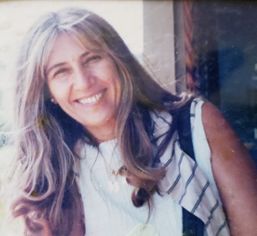
Partricia Cuasnicu, PhD
Biography
Dr Cuasnicu received her Ph.D degree in Chemistry from the University of Buenos Aires (Argentina) in 1983, and did her post-doc as NIH International Fogarty fellow at the New York Hospital-Cornell Medical Center (USA). Upon her return, she became director of a laboratory at IBYME focused on male reproductive physiology with specific interests in the molecular mechanisms involved in epididymal maturation and fertilization as well as in the development of methods for male fertility regulation. She has more than 80 publications and 300 presentations and has been invited as speaker in numerous (65) international meetings. She has mentored 55 students and directed 15 Ph.D Thesis.
Dr Cuasnicu served for 12 years as member of the WHO Task Force on Methods for Male Fertility Regulation and for 14 years as member of the TAC of CONRAD (Contraceptive Research and Development). She also served as Local Coordinator of the NIH “Fogarty International Training Grant in Reproductive Biology for Latin America” and as Executive Director of PLISSER (2009-2019), a WHO–supported Latino American Program of Research in Sexual and Reproductive Health. Her work along her career has been supported by Rockefeller Foundation, Mellon Foundation, WHO, CONRAD, and, at present, by MCI.
ASA Statement
(Please describe any leadership roles in ASA or similar organizations. If you have particular goals for ASA that you like to see implemented, you can briefly describe them here. Please try to keep below 200 words.)
Dr Cuasnicu began her association with the ASA in 1999 when she presented the first International Lecture at the ASA annual meeting. For the past 17 years, she has been serving as Chair of the International Liaison Committee (ILC) aimed to foster the interaction of ASA with other societies of andrology around the world. Dr Cuasnicu’s committee has been raising funds every year to provide fellowships to international young investigators and has promoted the organization of different activities at the International Congress of Andrology (ICA) held in Korea (2005), Spain (2009), Australia (2013) and Denmark (2017). In 2006, her committee created a speaker exchange program with the European Academy of Andrology (EAA) and since then the EAA Lecture has also become part of the ASA annual meeting program. She was ASA Council member (2006-2009) and has served as Editorial Board (1998-2004) and Associate Editor (2005-2012) of both the “Journal of Andrology” and “Andrology”. In 2005, Dr Cuasnicu was invited as speaker of the Women in Andrology (WiA) session organized by ASA at the ICA (Korea). She then served as Chair of the WiA committee (2009-2010) and continues being compromised with the role and position of women in science.
Elisabetta Baldi, PhD
Biography
POSITION TITLE
Associate Professor of Medical Pathology, University of Florence, Italy
EDUCATION/TRAINING
March 1979: Graduated in Biological Science in the University of Florence with 110/110 cum laude.
1979-1984: post-doctoral fellowship in the Institute of Clinical Pharmacology of the University of Florence.
April-May 1980: visiting scientist in the Laboratory of Biochemistry of the Imperial College of Science and Technology (London), directed by Dr. J. Hughes after winning a Wellcome Research Travel Grant for two months. During this visit she learns methods of biological assays.
March-April 1982: visiting fellow in the Laboratory of preclinical Pharmacology of the National Institute of Health (Washington, USA) directed by Prof. E. Costa to learn HPLC techniques.
November 1984: Specialized in Pharmacology at the University of Milan (70/70).
1984: Intern in the Laboratory of Endocrinology of the University of Florence directed by Prof. M. Serio.
1988-1990: two years research fellowship in the Laboratory of Nephrology directed by Prof. M. Dunn at Case Western Reserve University (Cleveland, Ohio).
July 1990-2001: Assistant in the Andrology Unit of the University of Florence directed by prof. G. Forti.
January 2002: win a position of Researcher in the University of Florence.
May 2005 – Present: Associate Professor in Clinical Pathology (MED/05) at the University of Florence, Department of Experimental and Clinical Medicine. She belongs to the Center of Excellence DeNothe of the University of Florence.
2012: obtain the habilitation to full professor in Clinical Pathology (MED/05)
January 2017: Responsible of the Laboratory of Semen analysis and semen cryopreservation of the Unit of Sexual Medicine and Andrology of the Azienda Ospedaliero Universitaria Careggi (http://www.aou-careggi.toscana.it/internet/index.php?option=com_content&view=article&id=749&Itemid=972&lang=it)
January 2019 : Responsible of CRITE (Research and Innovation Center – Tissue Establshment) of the Azienda Ospedaliero Universitaria Careggi
Main Actual fields of research:
–Sperm Biology: capacitation, acrosome reaction, motility.
–Nongenomic effects of progesterone on sperm functions and expression of the CatSper calcium channel.
–Search of semen predictive parameters of male fertility status and IVF outcomes.
–Investigation on the origin and the consequences on reproduction of sperm DNA fragmentation and other types of DNA damage.
–Role of the calcium channel CatSper in sperm functions.
–Prostate cancer cell biology, study of the mechanisms that regulate invasion and development of androgen resistence, search for prognostic markers in blood urine and biopsies
Scientific Awards
–Win several National and International awards
–Invited speaker in more than 100 International and National Congress
Public Grants:
2001-2003 WHO grant: Investigation on the possible presence of the C isoform of the progesterone receptor at the level of human sperm membrane (Scientific Coordinator of the project)
2003-2005 PRIN (Relevant National Research Projects) (PI of the Unit: Study on chromtin integrity in the male gamete in human and experimental models)
2005-2007 PRIN (Relevant National Research Projects) (PI of the Unit: Molecular mechanisms of the regulation of sperm functions)
2007-2009 PRIN (Relevant National Research Projects) (PI of the Unit: Study on several aspect of human sperm mitochondria)
2010-2012 PRIN(Relevant National Research Projects) (PI of the Unit: Mechanisms of DNA damage in human spermatozoa)
2015: AIRC Investigator Grant [17763- Prostate cancer and PSA screening: evaluation of molecular triage methods to detect clinically important prostate cancer, supported by Associazione Italiana per la Ricerca sul Cancro]: PI of a participant Unit.
2016-2018 PRIN (Relevant National Research Projects) (PI of the Unit: Environment, lifestyle and iatrogenic effects on sperm DNA and epigenetic modifications)
Main National and International Appointments
From 2005 Member of the International Liaison Committee of the American Society of Andrology (ASA), co-chair with Patricia Cuasnicu from 2017
2013-2014 Member of the ASA Awards Committee
from 1996 Managing Editor of the Journal: Frontiers in Bioscience
2005-2009 Editorial Board of Reproductive Toxicology
from 2012 Associate Editor of “Andrology”
from 2012 Associate Editor World Journal of Translational Medicine
from 2012 Associate Editor the Scientific World Journal
from 2015 Member of the editorial board of Asian journal of Andrology
2001-2010 Scientific Committee International Meetings Rapid Actions of Steroid Hormones
2006 and 2010 Member of the Programme Organizing Committee of European Congress of Andrology (EAA)
Dal 2014 Member of the scientific committee of the Italian Society of sexual medicine and andrology (SIAMS)
From 2015 Member of the Editorial Board of EMJ Reproductive Health and from 2018 EIC of the same journal
From 2016: Member of the Editorial Board of Asian Journal of Andrology
Member of the Scientific Committee of the X International Symposium on Spermatology (Madrid, 17-22 Settembre 2006).
from 2018: Editor in Chief of EMJ Reproductive Health
from 2018: associate Editor of Human Reproduction
From 2017: Editor for the VI Edition of the WHO Laboratory Manual for the Examination and processing of human semen.
Referee of many journals including: Human Reproduction, J. Clin End. & Metab.; Endocrinology, PlosOne, Molecular Human Reproduction, Fertility and Sterility, Biology of Reproduction, Reproduction, RBMonline, Scientific Report, Molecular Reprod. Dev. Andrology, Andrologia, Development and many others
Referee of grant proposals including: the Wellcome and the ONHMRC-Grant-Net (Australia), University of Milan, Science Foundation of Ireland, National Medical Research Council of Singapore), ANR (Agence Nationale de la Recherche, France), Research Grants Council (RGC) of Hong Kong,
Publications
–156 publications with IF. Number of citations: 5284 (2253 from 2012), H-index 44 (from Scopus based on citations from 1996-2017).
–“Guest Editor”:; Journal of Reproductive Immunology (special issue on “Inflammatory mediators in male reproductive tract”. Lead guest editor of the special issue: “in vitro manipulation of gametes and embryos” for the journal Biomed. Res. Int.
–Co-Editor of the book: Genetic damage in human spermatozoa (Springer , 2014) and Genetic damage in human spermatozoa, II edition, (Springer 2019)
